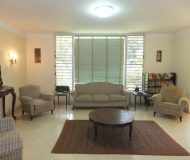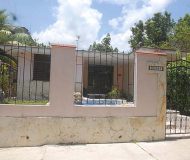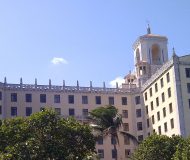Cuba Real Estate Laws
Until recently, it was impossible for either Cubans or foreigners to buy and sell property on the island. The state required all sales to be officially authorized and rarely granted permission to buy and sell real estate. Instead, the government allowed people to swap homes, which in many cases led to a black market of property exchanges accompanied by under the table side payments.
Recent Developments
In 2011, however, all that changed when when Decree-Law 288 was passed by the Cuban government allowing Cubans – and foreign nationals legally residing in Cuba– to buy and sell homes at prices they set between themselves. Ownership was restricted to one residence and one holiday home, however, and an asset tax of 4% was introduced for buyers, with sellers charged the same amount in income tax.
Then in 2014, the Cuban Foreign Investment Act included a section allowing international real estate investments into the country and permitting at least part-foreign-ownership of real estate as well as other property rights for non-citizens.
Today, property purchases by non-resident foreigners in Cuba must be made in one of three ways:
- through a joint venture with a cuban national
- via an international economic association agreement
- by a totally owned foreign capital company
If the sale or purchase of a property falls within one of these categories, then foreign investments into real estate can be made for either private use or tourist related purposes. Commercial property investments are also permitted to establish offices for foreign companies and real estate development is allowed in the tourism sector, including hotels and holiday apartments.
Property Titles
Cuba’s new laws have also simplified the procedures for registering property titles on the island with a system of municipal surveys now implemented to update the descriptions on ownership titles and show any changes or refurbishments that have been made.
An authorized architect assesses the value of a particular property and provides it with a “legally assessed value”which is valid for five years, but in many cases thesis still far below the property’s actual market value.
Cubans have responded with enthusiasm to the title laws, and according to the Ministry of Justice, in the first ten months of 2013 659,968 titles to residential property were registered across the island with about one third of them directly connected to a sale or swap.
Purchase Process
Once a price has been agreed between the buyer and seller of a particular property, the transaction must be registered with a notario, or Justice Ministry Lawyer, who then prepares the property titles and sales contract after verifying that the transaction meets the law’s requirements.
Payment must be made with a bank cashier’s check with taxes incurred on both sides within 30 days. The buyer can then register the updated title at municipal property registry.
Due Diligence
Although, in general, the Cuban property market now operates within the laws set out by recent reforms; there are still a number of ambiguities and legacy issues that require foreigners to conduct very thorough due diligence before entering into a real estate transaction.
In 2013, real estate agents were added to the list of professions eligible for self-employment in Cuba, and in some ways this has complicated the purchase process further. Values are rarely registered anywhere close to the prices actually paid for properties and the selection of reliable and legal joint venture partners is obviously a crucial concern.
To guide you through the process of purchasing Cuban property it is essential to seek professional and experienced help. That’s why Palm Group has quickly become the go-to firm for foreigners considering real estate investments on the island.
Contact us to discuss your specific investment goals and legal concerns. We would be more than happy to assist you in making a successful purchase in Cuba.






